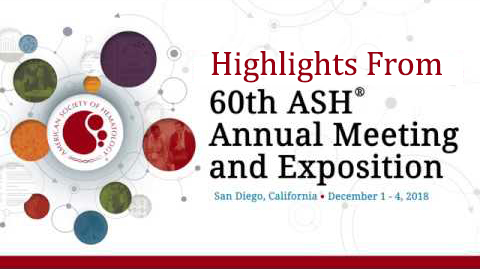SAN DIEGO HOSTS ANNUAL ASH CONFERENCE

December 5th, 2018–The American Society of Hematology (ASH) held its annual conference in Downtown San Diego (Dec. 1-4). Representatives from National Search Associates attended to facilitate connections between leaders in biotech and pharma and to witness exciting data presentations in hematology and oncology first hand. This year’s conference highlighted several leading programs including Janssen, Abbvie, and Legend Biotech.
Janssen Pharmaceutical, the pharmaceutical division of Johnson & Johnson, has announced positive Phase III data for Darzalex (daratumumab) in people with newly-diagnosed multiple myeloma who are ineligible for autologous stem cell transplant. The addition of the CD38-directed antibody to Revlimid (lenalidomide) and dexamethasone (Rd) significantly reduced the risk of disease progression or death. At a median follow-up of 28 months, the therapy reduced the risk of disease progression or death by 44%, compared with Rd alone. Darzalex is the first monoclonal antibody to receive US Food and Drug Administration approval to treat multiple myeloma.
AbbVie presented impressive clinical data from their Venetoclax combination with Biogen/Roche’s Rituxan. The randomized global phase III study treated patients for relapsed/refractory chronic lymphocytic leukemia with a median treatment time of 2 years. Researchers predicted 71% of patients obtained progression free survival at 36 months compared to 15% of patients receiving the current standard of care regimen (Teva’s Treanda + Rituxan). Furthermore, when patients were taken off treatment and monitored at a 3 year median, researchers found there was continued substantial benefit to those who received the combo therapy in comparison to Treanda + Rituxan.
Legend Biotech, a subsidiary of Genscript and Janssen partner reported results from their Phase I/II clinical trial of anti-BCMA CAR-T therapy LCAR-B38M. LCAR-B38M is being investigated in patients with advanced relapsed or refractory multiple myeloma. Legend’s data revealed an incredible 88% overall response rate, and a complete response of 74%. Four percent of patients had a “very good partial response” and 11% had a partial response. Among the 42 patients with complete response, 68% were minimal residual disease negative in the bone marrow. The median duration of response with a median follow-up of 12 months, was 16 months. Median progression-free survival (PFS) was 15 months for all patients.
